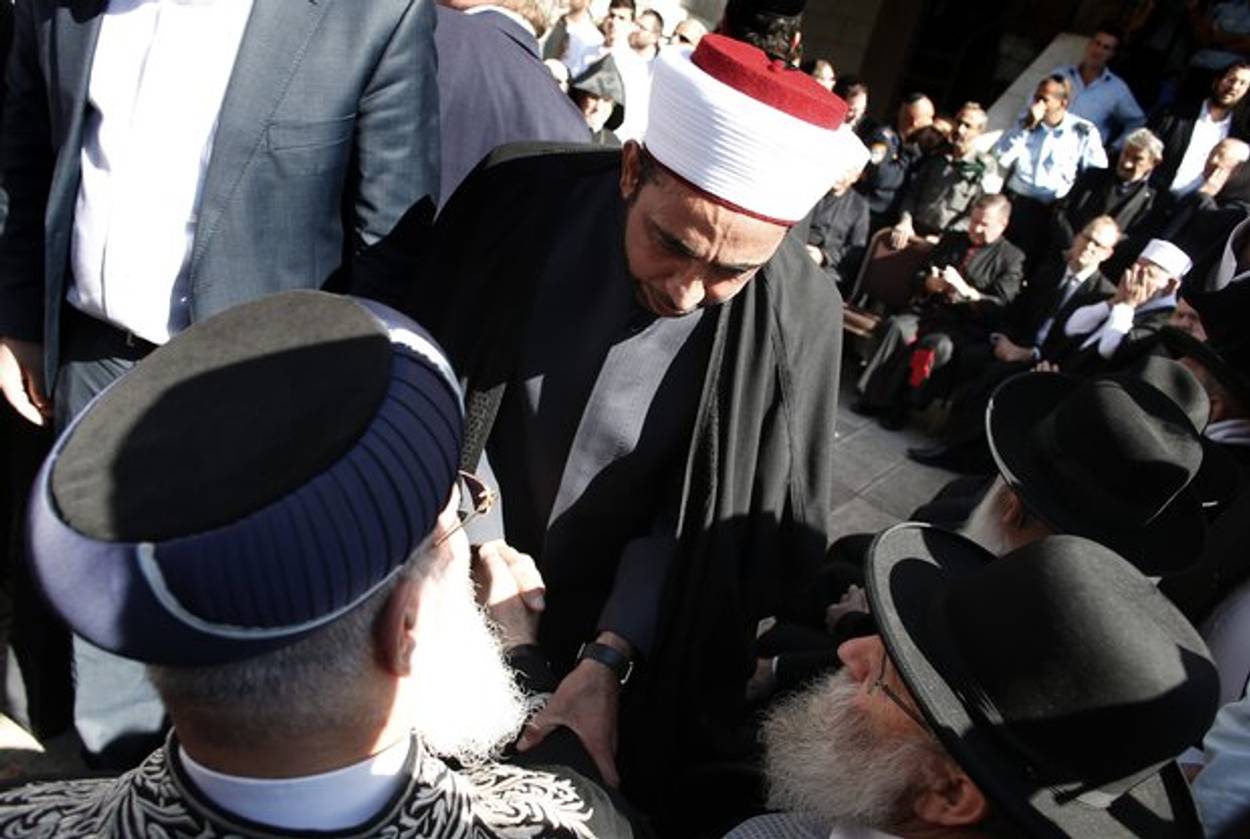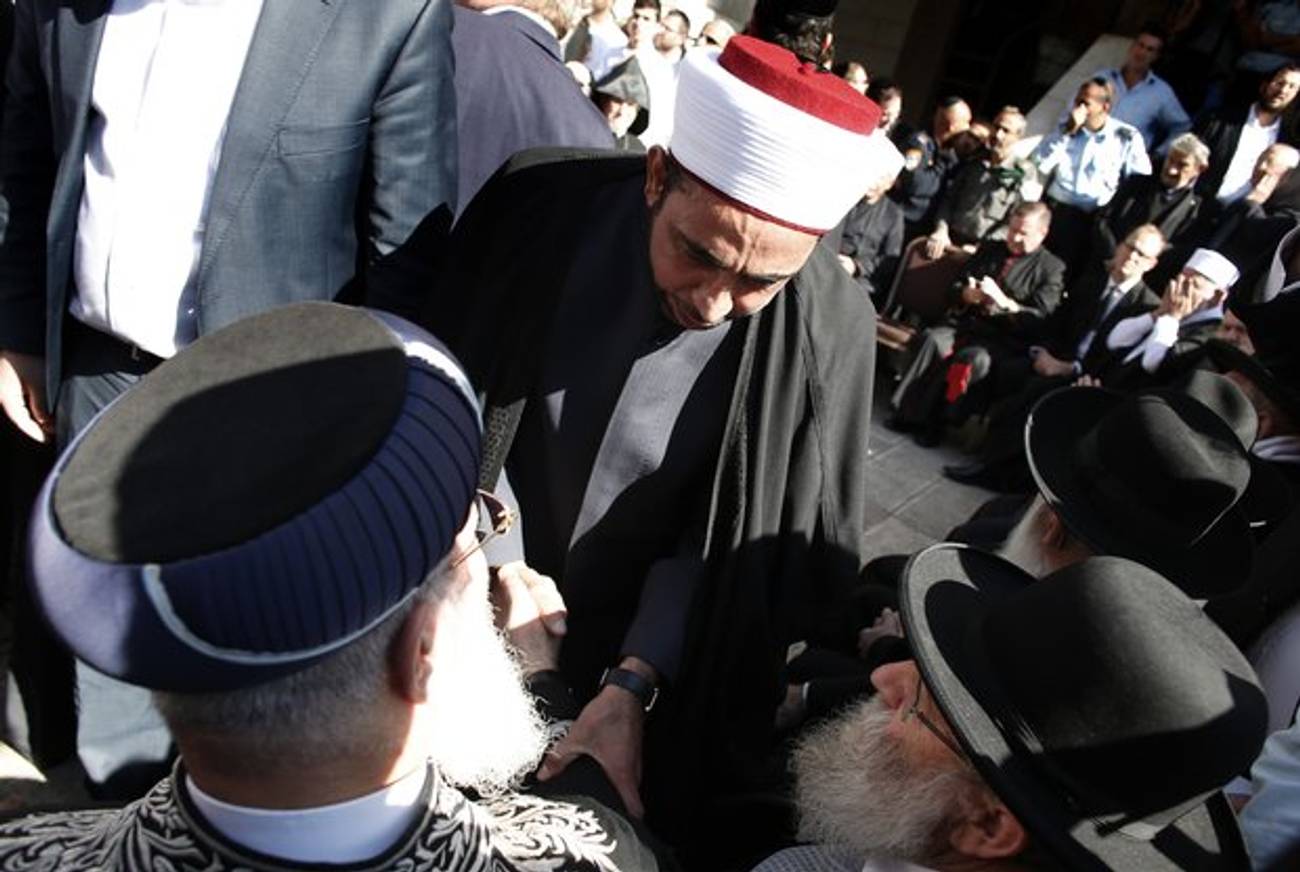Rabbis and Imams Hold Joint Discussion
Clergy from the two religions hope to foster interfaith dialogue




Amid the growing tensions in the Middle East, a concerned group of 60 Rabbis and Imams gathered in Washington D.C. on Sunday for the “2014 Summit of Washington Area Imams and Rabbis,” to discuss ways to improve relations, and foster interfaith dialogue, between Jews and Muslims in America. Organizers and participants hope this will lead to other discussions between Jewish and Muslim leaders in the United States.
The group proposed both community style events—basketball games between teenagers and charity projects—to help build relationships between members of both religions, and also educational programming to teach each about the other: “Islam 101 classes” for Jews and “Judaism 101” courses for Muslims. In addition, despite the divisive rhetoric usually associated with Israeli-Palestinian relations, many of the attendants agreed that Jews and Muslims should engage each other in open discussion of the situation.
They also urged a focus on the common religious themes between the Judaism and Islam: similarities between Kosher and Halal and the shared Abrahamic tradition, among others.
“In my view we are the closest two religions in the world,” said Rabbi Gerry Serotta, executive director of the InterFaith Conference of Metropolitan Washington. “The perception is that Jews and Muslims are irreconcilable, he added, “and when people see that we’re not, it gives them hope.”
Zack Schrieber is an intern at Tablet Magazine. Follow him on Twitter @zschrieber.